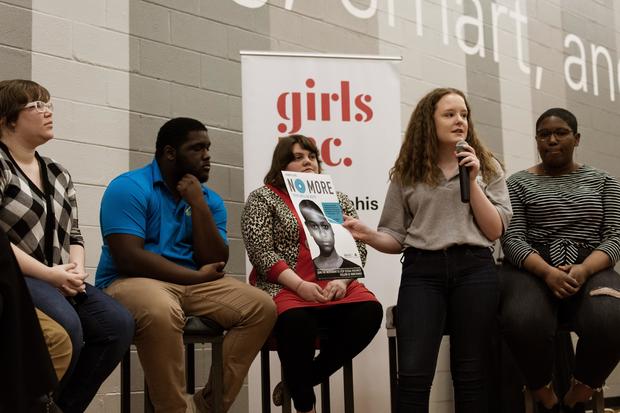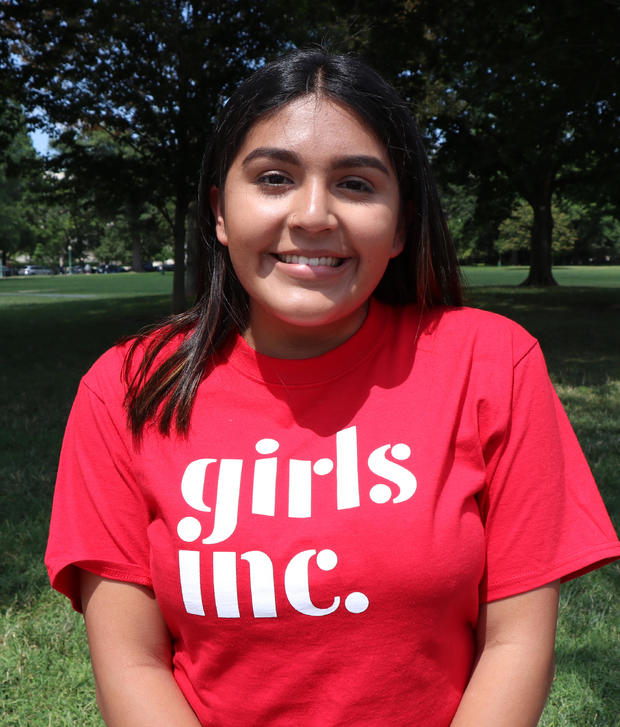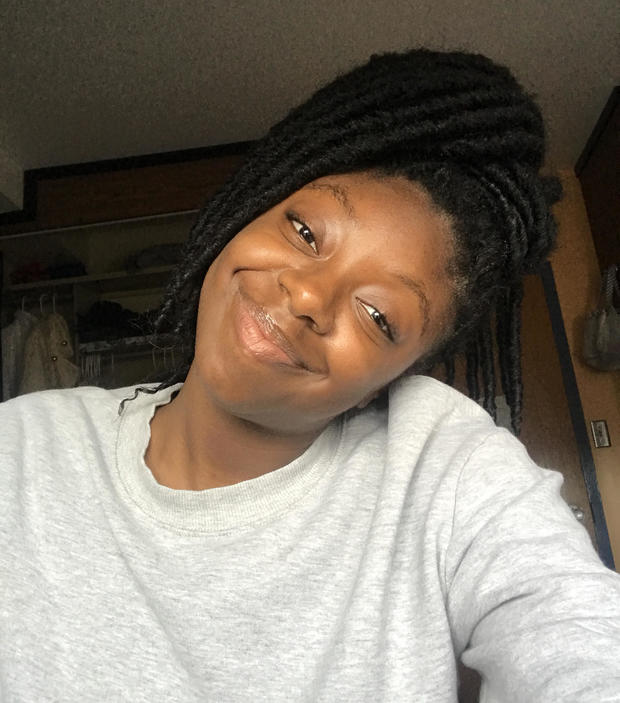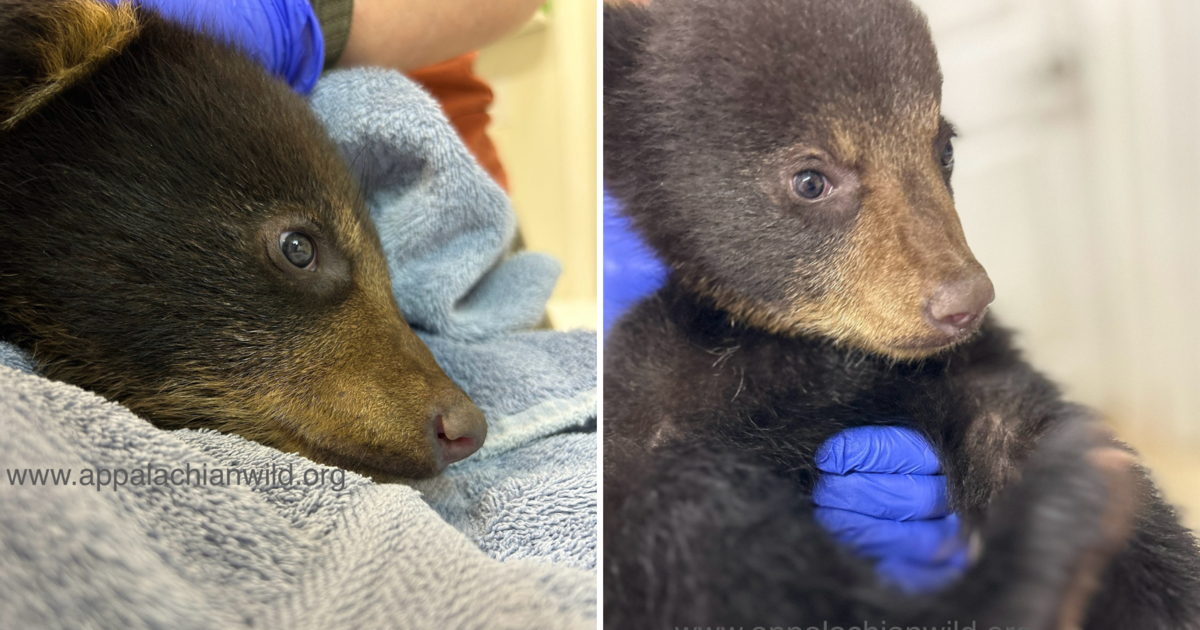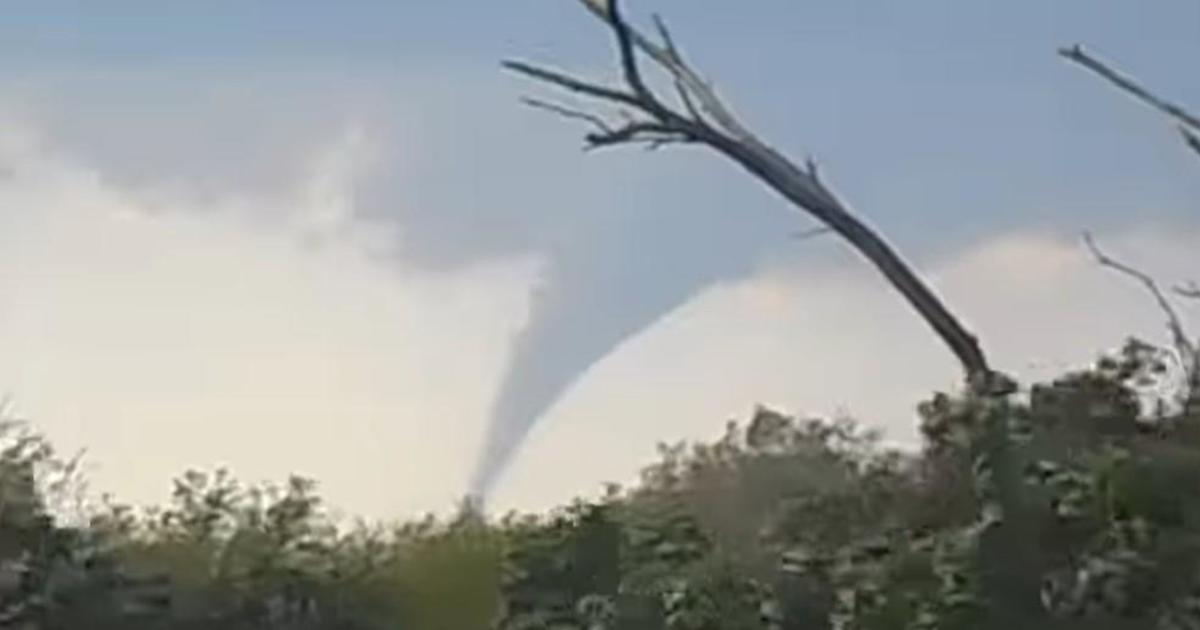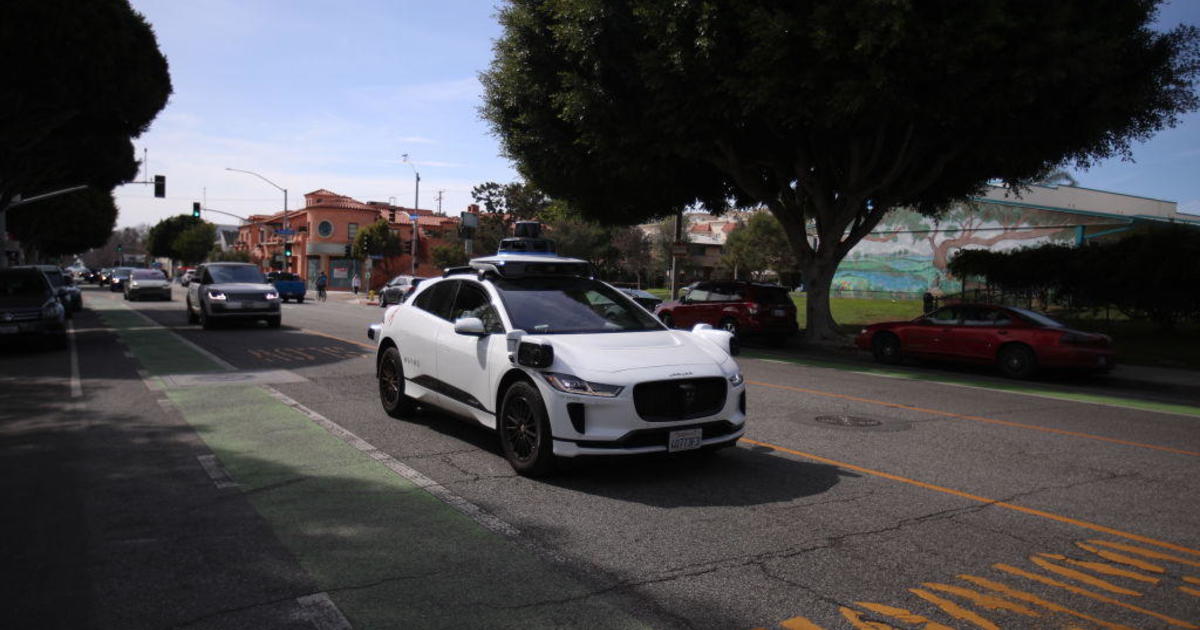#MeToo for youth: #GirlsToo focuses on teens' sexual trauma
Savannah Thompson was getting her lunch out of her locker shortly before the school year ended when she was suddenly slammed into the lockers from behind. She said her assailant then proceeded to dry hump her and call her derogatory terms in a hallway full of onlookers.
"He was screaming these things in the hallway and at least five teachers saw it and they did nothing," Thompson told CBS News. She was in eighth grade at the time and is now 15 years old.
She said the guy who allegedly attacked her had harassed her all three years of middle school, making comments about her body and pushing her after she told him to stop. Thompson said after he assaulted her, she lost all of her friends.
"No one wanted to be friends with me because people were calling me a slut and a whore and all that stuff when I had done nothing," she said.
She said other boys in her middle school also harassed her, grabbing her buttocks and newly developing breasts and making her the target of catcalls. These experiences motivated her to join the Memphis affiliate of Girls Inc. and become an advocate for the #GirlsToo movement, which focuses on addressing sexual trauma plaguing young girls.
"I think just being a teenager throughout this era of #MeToo was very important and transformative," Thompson said.
But she also said it was difficult to find a place in the discussion as a teen.
"So I think the #GirlsToo campaign is reimmersing young girls into this conversation and allowing us the space and the resources to share our voices and our experiences," Thompson said.
High-profile cases of the #MeToo movement, such as the accusations against Harvey Weinstein and Bill Cosby, have gained significant media attention, shedding light on workplace harassment and sexual assault. But many of those incidents involved predominantly career-age white women.
"There hasn't been a lot of discussion in the media about how this really affects our kids and how young this starts, and what we can do as a society to change that trajectory so we don't end up repeating these cycles over and over again," said Lara Kaufmann, public policy director at Girls Inc., an organization helping steward the #GirlsToo movement.
The #GirlsToo movement is an attempt to better include girls younger than 18 in the conversation. One in 4 girls are sexually assaulted by the time they reach age 18 and 2 out of 3 girls are harassed, according to the latest data collected by the National Sexual Violence Resource Center.
These statistics are alarming and such experiences can lead to lifelong damage, according to Christia Spears Brown, Ph.D., a professor of developmental psychology who studies the effects of gender stereotypes among children and adolescents.
"If you're an adolescent girl, your body is changing for the first time, so your ideas about how you look and how your body is perceived to others is just in the middle of developing," she said. "And if someone abuses it in those formative stages, it leads to lifelong skewed views of how your body looks."
Brown explained that while sexual harassment and sexual assault among adults is serious, the impact of such conduct specifically on children and teens needs to get more attention.
"Not to take away from these things happening to 40-year-olds, but it's quite different for 14-year-olds who are really just learning about their place in the world," she said. "It's really a message to say you're really not valued in the world or you're only valued because of your sexuality and your sense as a sexual object."
Girls who are sexually harassed before the age of 18 are more likely to be depressed, anxious, have eating disorders, post-traumatic-stress disorder, suicidal thoughts, decreased academic motivation, and school absenteeism among many other things, according to Brown's research. She said that all of these consequences are heightened in instances of sexual assault.
"I got really bad anxiety from being sexually harassed," Thompson said. "I was scared to walk down the hallway or go to class and learn because I knew certain people would be there. I was really, really, extremely depressed and got to the place where committing suicide is something I often felt. ... I felt really abandoned and alone."
Therapy and the #GirlsToo programming within Girls Inc. helped her healing process, but many girls don't have those resources. Especially girls of color, who are more often viewed in a hyper-sexualized manner and may suffer even greater consequences from sexual harassment and sexual assault, according to Brown.
"There are negative stereotypes about girls of color that says that they are perhaps more sexual than white girls," she said. "We fetishize their sexuality and so they are even less likely to be believed and taken seriously."
Alitza Gonzales, 16, who lives in a predominantly Mexican community in Carpinteria, California, said she has personally observed and experienced the heightened sexualization of society's perception of young girls of color.
"When I go to dances that are Mexican festivals, I see older men staring at girls my age but they think it's OK because that's part of the culture," she said. "Same goes for African American women where at such a young age they are expected to be sexually mature."
Q-Tiye Clarke, a black 18-year-old freshman at Buffalo State College, can also attest to the problem. She said in her neighborhood men would "watch girls and look at them like they are edible objects."
"I didn't even like crossing the street when there was a group of men there," she said. "I'd walk a whole different way to get where I had to go."
Street harassment coupled with being a survivor of sexual assault as a teenager caused Clarke to have severe anxiety and to become fearful of all men.
Clarke said it was scary to be in a situation where she could possibly be harassed because she knows how quickly harassment can escalate into assault.
"Some people take it and laugh — even some girls giggle and keep it going, but they don't realize how it can escalate and turn into something different," she said.
Brown said the correlation between sexual harassment and sexual assault is a close one, which is why it is so important to address sexual harassment among children at a young age.
"We are allowing middle school boys to make comments about girls' body parts and to rate them, or pop a bra strap," she said. "What we see in schools, that culture is not often addressed. Then by the time we get into high school it gets a little more extreme, [girls] being touched or grabbed against [their] wishes. And then that culture is still not addressed."
Many girls have complained that even when they report sexual harassment, teachers, administrators, and adult family members often brush it off as "boys just being boys." Brown explained that it is harmful for adults not to address these behaviors because by the time boys go to college, with even less adult supervision than they've had before, a harmful culture has already been fostered.
"The culture is really one that allows sexual assault — most specifically rape — to occur because it's a continuation of those building behaviors that have been going on since they started puberty," she said.
Those involved with the #GirlsToo movement hope the campaign can help change the cultural norms of sexual violence, starting with sexual harassment fostered in elementary schools across the nation.
"I just hope girls start to feel more safe and more in control and that people start recognizing sexual harassment for what it is," Clarke said. "Sexual harassment isn't something cute or that we should smile at because the more we do that, the more we normalize it."
More information:
- To join the #GirlsToo movement, click here.
